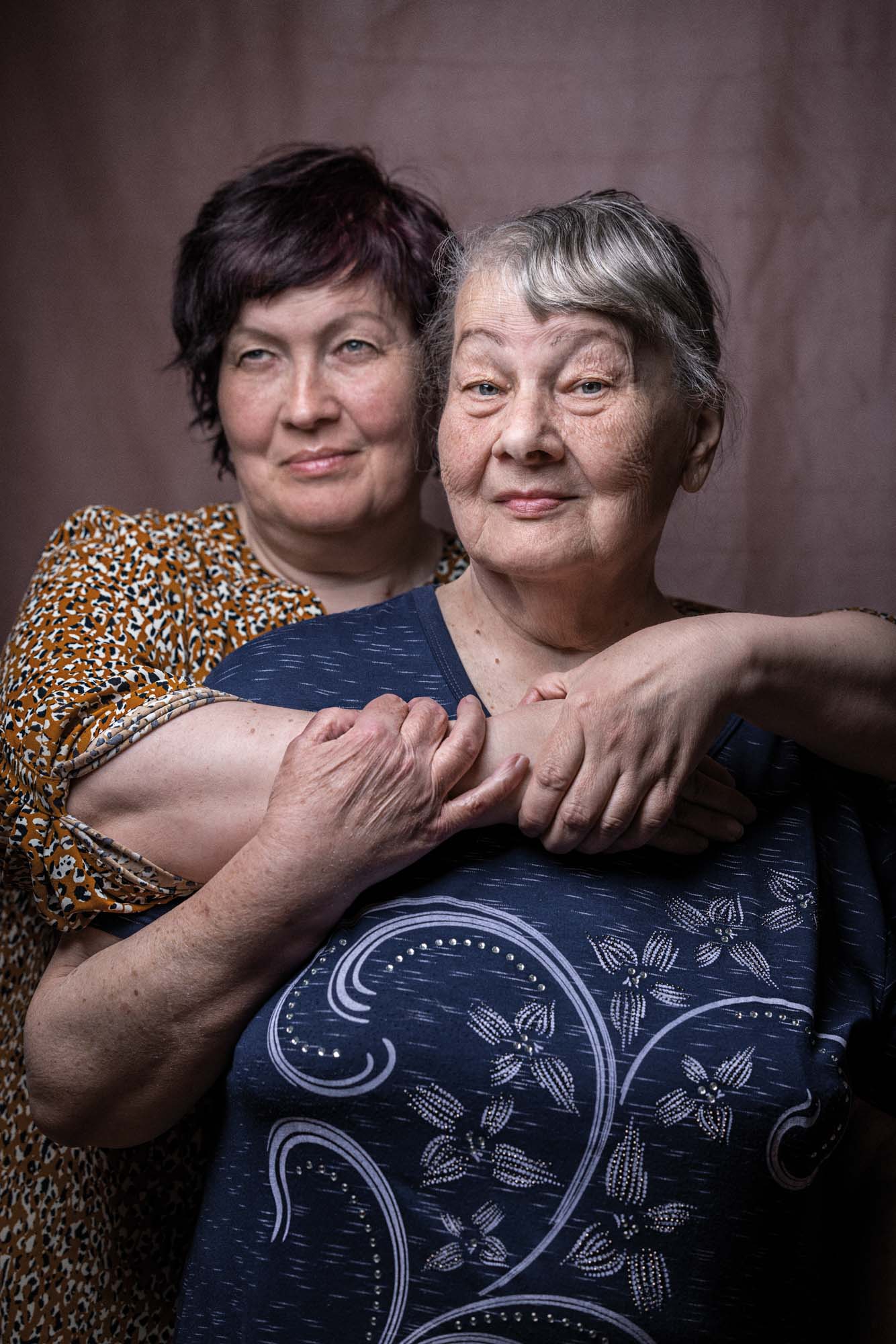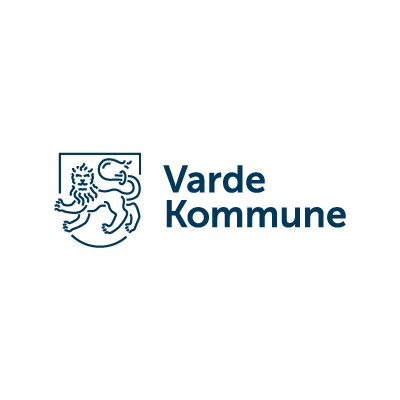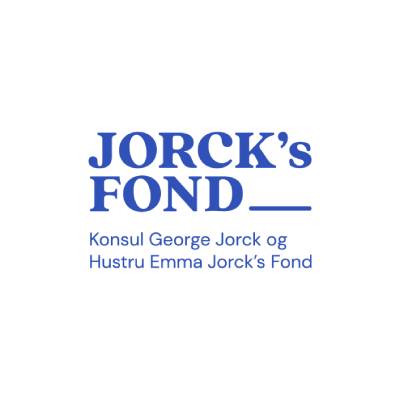Natalia & Nadezda
They target civilians. We only had two bags with us when arriving in Denmark.
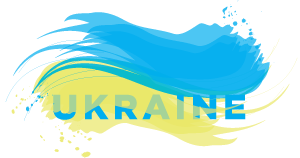
language
Portrait BY MARTIN THAULOW
In Esbjerg, the television is switched on from early morning until late at night. Nadezda (76) and Natalia (54), mother and daughter, keep up with the Ukrainian news stream. They are waiting for good news about the impending Ukrainian offensive, which has been anticipated for months. Their hometown of Melitopol, located in southeastern Ukraine in the Zaporizhizhia region, is occupied by the Russians.
The Beginning of the War
We are in a small apartment on the second floor in Esbjerg. In another room, you can hear Natalia's children Gleb (14) and Nina (17). They don't want to participate in the interview. We have gathered around a table in the living room, which transforms into a bedroom in the evening. Gleb sleeps on the large black leather couch, and the bed on the other side of the table, where the two ladies are sitting, is Nadezda's bed.
Natalia
The children panicked.
We have met to hear about their escape from Ukraine to Esbjerg, Denmark. “We were awakened on the 24th of February at 5:00 AM in the morning. Two large missiles struck very close by. The windows were blown out, and we had no idea what was happening,” Natalia says first, remembering how she was supposed to be at work early that morning. Everything ended in chaos as the family was in a state of shock, trying to figure out how to handle the difficult situation. The phone rang constantly as everyone wanted to know if they were safe, at the sametime as everyone tried to figure out what was going on. Natalia's husband was in Poland, so she was alone at home with the children in the apartment. “The children panicked,” Natalia recalls, before continuing to recount how the next decision turned out to be a bad one.
An escape from the City to the Countryside
Nadezda stayed in her house in a village outside Melitopol. Her husband had passed away long before the war, so she lived there alone. It was one of Natalia's neighbors who ended up driving Natalia, Gleb, and Nina out of Melitopol to the village. “We thought it would be safer in the countryside,” Natalia explains, but that's where the fighting escalated as the Russians advanced. “We saw lots of dead soldiers in the streets... Russian soldiers,” Natalia recalls. At that time, the front line fluctuated back and forth, and they ended up being 10 people in Nadezda's basement. Some neighbors sought refuge there because they didn't have a basement of their own. For three days, they all sat tight together on the cold concrete floor to survive, while they could hear the fighting getting closer and closer. The Ukrainians were forced to retreat, and the Russians occupied the area.
The journey out of Ukraine
When the Russians took over the village, there was no gas or electricity. The internet was blocked, and no one knew what was happening. They decided to go back to Melitopol, where they managed to live for a month under Russian occupation. The children didn't go to school, and Natalia's job had been shut down. Before the war, she worked as a nurse at a clinic, but with the lack of pay, fear of the war, and the difficult situation, they saw no other possibilities but to flee Ukraine.
Natalia
There were people in line everywhere. We didn't think we would make it to the other side.
Natalia's eldest daughter, son-in-law, and young grandchild had already fled from Kyiv to the USA at the beginning of the war. They had researched the options and recommended Denmark as the best place they could seek refuge. They managed to pass through the Russian checkpoint, so they could leave the occupied area in Zaporizhizhia, and then they boarded an evacuation train to Lviv, a journey that took them 24 hours. After that, they crossed the border into Poland. “There were people in line everywhere. We didn't think we would make it to the other side. It took an eternity,” Natalia recounts before taking a long pause.
The Road to Esbjerg
They spent three days in Przemysl, Poland, a city close to the Ukrainian border. There, volunteers took care of them while they gathered strength for the next stage. Natalia, Nadezda, Gleb, and Nina ended up on a bus with some religious people from Denmark. They had two bags with them, containing only the essentials. They left the rest behind in their home country. The journey from Poland went directly to Esbjerg, where they were accommodated by a Danish family for about two months. After that, they moved to the apartment where they still live today.
Life in West Jutland
Today, Gleb attends a regular Danish school three days a week, and two days a week, he attends a Ukrainian class. Nina has applied to the international gymnasium, and in her free time, she works in a sports facility. Natalia attends a Danish school three days a week, but she has developed severe problems with her back, which she believes are due to the many hours spent in the basement, seeking shelter from the bombs and bullets of war.
Nadezda
There is nothing left. Russian soldiers stole my home. They took everything.
Nadezda has memory problems and does not go to school. She takes the opportunity to elaborate further on the situation back home: “There is nothing left. Russian soldiers stole my home. They took everything.” Nadezda explains how neighbors in the area could inform them about how furniture, belongings, big and small, were stolen by the Russian soldiers. “They even stole the front door. I am too old; I cannot return home,” she says, ending with a heavy sigh.
Russia Attacking Its Own
After a long pause, Nadezda speaks up again. She has been sitting quietly, listening to Natalia's answers to the many follow-up questions. “How can the Russians attack their own people? I was born in Siberia myself,” she says, maintaining her gaze. Her parents moved to Melitopol when she was young because they wanted to live in a warmer climate.
Nadezda
Ukrainians are very Warm-hearted, and we only want to live in peace. We didn't threaten anyone. The same goes for Crimea and Donetsk.
Later, Nadezda married a Ukrainian man. “Ukrainians are very Warm-hearted, and we only want to live in peace. We didn't threaten anyone. The same goes for Crimea and Donetsk,” Nadezda continues. She refers to Putin's annexation of the Crimean Peninsula in 2008 and the Russians' invasion of Donetsk and Lugansk in 2014. “The Russians are dropping bombs on civilians right now. Why?” Nadezda asks, “They are terrorists...” she says with anger in her voice.
The Future
“To flee is a state of shock. It's tears and fear for one's children. Fear for one's future. It's not something I wish for anyone to experience,” Natalia says. Her children must choose for themselves what their future holds. Whether they will stay in Denmark or return to Ukraine. Gleb has expressed his desire to become an Azov soldier and fight for a free Ukraine. For now, Nina wants to pursue her education in Denmark. Nadezda doesn't see a future in Ukraine because she has lost everything. Despite knowing that she will never learn the Danish language, and how important language is to get by. Natalie is torn. She prays and hopes for a swift end to the war. That democracy will prevail so that the rebuilding and healing process of Ukraine can begin.
Nadezda
Nadezda, my name means hope...
As we are about to conclude, it turns out that Nadezda turned 76 the day before we met. She appears as a strong woman, sitting across the table, speaking with her deep and powerful voice. “Nadezda, my name means hope,” she says. Silence falls as the information sinks in. She ends the encounter by thanking Denmark and all Danes for welcoming the Ukrainian people so well when they came here in their time of need. “I want to thank the Danish people for their help and support.” Those are the last words from Nadezda that day.
Voices of the future
Portraits & stories by Martin Thaulow
Translations Ukrainian Katerina Chalenko
Stories in English Amalie Pi Sørensen
Partners

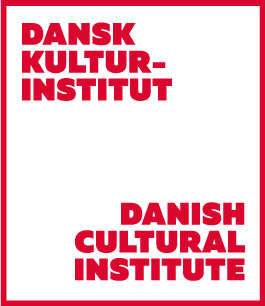
Backed by
Наталія і Надія
(54 + 76) з Мелітополя, УКРАЇНА
Вони націлені на цивільне населення. Коли ми приїхали до Данії, ми мали лише дві сумки.

language
ПОРТРЕТ ЗРОБЛЕНИЙ МАРТІНОМ ТАУЛОУ
Підтримайте нашу роботу
Голоси майбутнього
Portraits & stories by Martin Thaulow
Translations Ukrainian Katerina Chalenko
Stories in English Amalie Pi Sørensen
Партнер


За підтримки
Natalia & Nadezda
Sie greifen Zivilisten an... Als wir in Dänemark ankamen, hatten wir nur zwei Taschen bei uns.

language
PORTRÄT VON MARTIN THAULOW
In Esbjerg läuft der Fernseher von den frühen Morgenstunden bis spät in die Nacht. Nadezda (76) und Natalia (54), Mutter und Tochter, sehen sich die Nachrichten aus der Ukraine an. Seit Monaten warten sie auf gute Nachrichten über die bevorstehende ukrainische Offensive. Ihre Heimatstadt Melitopol in der südöstlichen Ukraine, im Gebiet Zaporizhzhya, ist unter russischer Besatzung.
Der Kriegsbeginn
Wir befinden uns in Esbjerg, Dänemark, in einer kleinen Wohnung im zweiten Stock. Natalias Kinder Gleb (14) und Nina (17) sind in einem anderen Zimmer zu hören. Sie wollen sich nicht an dem Interview beteiligen. Im Wohnzimmer, das abends zum Schlafzimmer wird, haben wir uns um einen Tisch versammelt. Gleb schläft auf dem großen schwarzen Ledersofa. Das Bett auf der anderen Seite des Tisches, auf dem die beiden Frauen sitzen, ist das Bett von Nadezhda.
Natalia
Die Kinder hatten Panik.
Verabredet haben wir uns zu einem Gespräch über ihre Flucht aus der Ukraine nach Esbjerg. “Am 24. Februar um 5 Uhr früh wachten wir schlagartig auf. Ganz in der Nähe schlugen zwei große Raketen ein. Die Fenster zersprangen und wir wussten nicht, was los war”, erzählt Natalia und erinnert sich, dass sie an diesem Morgen früh zur Arbeit musste. Die Familie war geschockt und versuchte mit dieser schwierigen Situation umzugehen. Das Telefon kam gar nicht mehr zur Ruhe, jeder wollte wissen, ob alles in Ordnung sei. Natalias Mann war in Polen, so dass sie mit den Kindern allein in der Wohnung geblieben war. “Die Kinder hatten Panik”, erinnert sich Natalia.
Die Flucht von der Stadt aufs Land
Nadezda blieb in ihrem Haus, das in einem Dorf in der Nähe von Melitopol liegt. Sie lebte dort allein, da ihr Mann schon lange vor dem Krieg gestorben war. Natalia, Gleb und Nina wurden schließlich von einem Nachbarn aus Melitopol in das Dorf gefahren. “Wir dachten, dass es auf dem Land sicherer sein würde”, sagt Natalia, aber dort wurden die Kämpfe immer heftiger, als die Russen immer weiter vorrückten. “Wir haben eine Menge toter Soldaten gesehen... Russische Soldaten”, erinnert sich Natalia. Zu dieser Zeit bewegte sich die Frontlinie hin und her, und am Ende waren nur noch zehn Menschen im Keller von Nadezda. Weil sie selbst keinen Keller hatten, suchten einige Nachbarn dort Schutz. Drei Tage lang saßen alle dicht gedrängt auf dem kalten Betonboden und versuchten zu überleben. Sie hörten, wie die Kämpfe immer näher kamen. Der Rückzug der Ukrainer und die Besetzung des Gebietes durch die Russen waren die Folge.
Die Reise aus der Ukraine
Es gab weder Gas noch Strom, als die Russen das Dorf einnahmen. Das Internet ging nicht und niemand wusste, was los war. Sie entschieden sich, nach Melitopol zurückzukehren, wo sie einen Monat unter russischer Besatzung überlebten. Die Kinder gingen nicht zur Schule, und Natalia hatte keine Arbeit mehr. Natalia hatte vor dem Krieg als Krankenschwester in einer Klinik gearbeitet, doch die schlechte Bezahlung, die Angst vor dem Krieg und die schwierige Situation führten dazu, dass sie keine andere Möglichkeit sahen, als aus der Ukraine zu fliehen.
Natalia
Überall standen die Menschen in Schlangen an. Wir hatten keine Hoffnung, dass wir auf der anderen Seite der Grenze ankommen würden.
Natalias älteste Tochter, ihr Schwiegersohn und ihr kleiner Enkel waren bereits zu Beginn des Krieges aus Kiew in die USA geflohen. Sie hatten sich über Fluchtmöglichkeiten informiert und empfahlen Dänemark als besten Ort für ihre Flucht. Sie schafften es, an den russischen Kontrollposten vorbeizukommen, das besetzte Gebiet in Zaporizhzhya zu verlassen und mit einem Evakuierungszug in 24 Stunden nach Lviv zu gelangen. Dann überquerten sie die Grenze nach Polen. “Überall standen die Menschen in Schlangen an. Wir hatten keine Hoffnung, dass wir auf der anderen Seite der Grenze ankommen würden. Es hat ewig gedauert”, erzählt Natalia.
Der Weg nach Esbjerg
Im polnischen Przemysl, einer Stadt nahe der ukrainischen Grenze, verbrachten sie drei Tage. Dort kümmerten sich freiwillige Helferinnen und Helfer um sie, während sie sich für die nächste Etappe stärken konnten. Natalia, Nadezda, Gleb und Nina kamen in einem Bus an, in dem auch einige Ordensleute aus Dänemark saßen. Sie hatten nur zwei Taschen mit dem Nötigsten dabei. Den Rest ihrer Sachen haben sie in ihrem Heimatland zurück gelassen. Von Polen aus ging die Reise direkt nach Esbjerg, wo sie etwa zwei Monate bei einer dänischen Familie zu Gast waren. Im Anschluss daran zogen sie in die Wohnung, in der sie auch heute noch leben.
Das Leben in Westjütland
Heute wird Gleb an drei Tagen in der Woche in einer dänischen Regelschule und an zwei Tagen in einer ukrainischen Klasse unterrichtet. Nina besucht ein internationales Gymnasium und arbeitet in ihrer Freizeit im Sportverein. An drei Tagen in der Woche besucht Natalia eine dänische Schule, doch sie hat starke Rückenprobleme, die sie den vielen Stunden im Keller des Dorfes zuschreibt, in denen sie Schutz vor den Bomben und Kugeln des Krieges suchte.
Nadezda
Es gibt nichts mehr. Die russischen Soldaten haben mir mein Haus gestohlen. Alles wurde mitgenommen.
Nadezda leidet unter Gedächtnisproblemen und geht nicht zur Schule gegangen. Bei dieser Gelegenheit schildert sie die Situation in ihrer Heimat: “Es gibt nichts mehr. Die russischen Soldaten haben mir mein Haus gestohlen. Alles wurde mitgenommen.” Nadezda erzählt, wie sie von Nachbarn aus der Umgebung über den Diebstahl von Möbeln, großen und kleinen Gegenständen durch russische Soldaten informiert worden sei. “Sogar die Haustür wurde gestohlen.” Mit einem schweren Seufzer sagt sie: “Ich bin zu alt, ich kann nicht mehr nach Hause zurück.”
Russland greift seine eigenen Leute an
Nadezda spricht nach einer langen Pause wieder. Sie saß schweigend da und hörte zu, wie Natalia auf die vielen Nachfragen antwortete. “Wie können die Russen gegen ihr eigenes Volk vorgehen? Ich selbst bin gebürtige Sibirierin”, sagt sie und hält den Blick gesenkt. Als sie noch klein war, zogen ihre Eltern wegen des wärmeren Klimas nach Melitopol.
Nadezda
Die Menschen in der Ukraine sind sehr warmherzig, und wir wollen einfach nur in Frieden leben. Das gilt auch für die Krim und für das Gebiet Donezk.
Später hat Nadezda einen Mann aus der Ukraine geheiratet. “Die Menschen in der Ukraine sind sehr warmherzig, und wir wollen einfach nur in Frieden leben. Wir haben noch nie jemanden bedroht. Das gilt auch für die Krim und für das Gebiet Donezk”, fährt Nadezda fort. Sie meint damit die Annektierung der Krim 2008 und die russische Invasion von Donezk und Lugansk 2014. “Die Russen werfen gerade Bomben auf Zivilisten ab. Warum?”, fragt Nadezda. “Das sind Terroristen...”, sagt sie mit Wut in der Stimme.
Die Zukunft
“Auf der Flucht zu sein ist ein Schock. Man weint und hat Angst um die eigenen Kinder. Ängste vor der eigenen Zukunft. Das wünsche ich wirklich niemanden”, sagt Natalia. Ihre Kinder sollen selbst entscheiden, wie ihre Zukunft aussehen soll. Ob sie in Dänemark bleiben oder ob sie zurück in die Ukraine gehen werden. Gleb will Soldat in der Asow-Armee werden und für eine freie Ukraine kämpfen. Nina möchte ihre Ausbildung in Dänemark fortsetzen. Weil sie alles verloren hat, sieht Nadezda keine Zukunft in der Ukraine. Auch wenn sie weiß, dass sie die dänische Sprache nie lernen wird und wie wichtig es ist, die Sprache zu lernen, um sich zurechtzufinden. Natalie ist hin- und hergerissen. Sie betet und hofft, dass der Krieg schnell zu Ende geht. Auf ein Ende des Krieges, auf den Sieg der Demokratie, auf den Beginn des Wiederaufbaus und des Heilungsprozesses in der Ukraine.
Nadezda
Nadeschda, mein Name bedeutet Hoffnung.
Am Ende stellt sich heraus, dass Nadezda am Vorabend unseres Treffens 76 Jahre alt geworden ist. Sie sitzt am anderen Ende des Tisches und spricht mit ihrer tiefen, kräftigen Stimme. “Nadeschda, mein Name bedeutet Hoffnung”, sagt sie. Mucksmäuschenstill ist es, als sie die Information aufnimmt. Zum Abschluss des Treffens bedankt sie sich bei Dänemark und allen Dänen dafür, dass sie das ukrainische Volk in seiner Not so gut aufgenommen haben. “Ich möchte mich bei den Dänen für ihre Hilfe und ihre Unterstützung bedanken”. Das waren Nadezdas letzte Worte an diesem Tag.
Stimmen der Zukunft
Porträts & Geschichten von Martin Thaulow
Übersetzungen ins Ukrainische Katerina Chalenko
Geschichten auf Englisch Amalie Pi Sørensen
Partner


unterstützt von
Natalia & Nadezda
De angriber civile… Da vi ankom til Danmark, havde vi kun to tasker med os.

language
Portræt af MARTIN THAULOW
I Esbjerg kører fjernsynet i alle de vågne timer. Nadezda (76) og Natalia (54), mor og datter, følger med i den ukrainske nyhedsstrøm. De venter på godt nyt om den forestående ukrainske storoffensiv, som i månedsvis har været ventet. Deres hjemby Melitopol, som ligger i det sydøstlige Ukraine i Zaporizjzja regionen, er besat af russerne.
Krigens begyndelse
Vi er i en lille lejlighed på anden sal i Esbjerg. I et andet værelse kan man høre Natalias børn Gleb (14) og Nina (17). De har ikke lyst til at deltage i interviewet. Vi har vi taget plads rundt om et bord. Det er stuen, der om aftenen bliver forvandlet til et soveværelse. Her sover Gleb på den store sorte lædersofa, og sengen på den anden side af bordet, hvor de to damer har sat sig, er Nadezdas seng.
Natalia
Børnene gik i panik.
Vi er samlet for at høre om deres flugt fra Ukraine til Esbjerg. “Vi blev vækket den 24. februar kl. 5.00 om morgenen. To store missiler slog ned meget tæt på. Vinduerne blev blæst ud, og vi anede ikke, hvad der skete.” Fortæller Natalia som det første, mens hun husker, hvordan hun skulle have været på arbejde tidligt den morgen. Alt endte i kaos, imens familien gik rundt om sig selv, og forsøgte at finde ud af, hvordan de skulle håndtere den svære situation. Telefonen ringede konstant, da alle ville høre om de var uskadt, samtidig med at alle forsøgte at finde ud af, hvad der foregik. Natalias mand var i Polen, så hun var alene hjemme med børnene i lejligheden. “Børnene gik i panik”, husker Natalia, inden hun fortsætter med at berette om, hvordan den næste beslutning skulle vise sig at være dårlig.
Flugten fra byen til landet
Nadezda opholdt sig i sit hus i en landsby uden for Melitopol. Hendes mand var gået bort længe før krigen, så hun boede der alene. Det var en af Natalias naboer, som endte med at køre Natalia, Gleb og Nina ud af Melitopol til landsbyen. “Vi troede, at det var mere sikkert på landet”, forklarer Natalia, men netop her tog kampene til, mens russerne avancerede. “Vi så massere af døde soldater i gaderne… Russiske soldater”, genkalder Natalia. På det tidspunkt bølgede fronten frem og tilbage, og det endte med, at der sad 10 mennesker i Nadezdas kælder. Nogle naboer havde søgt tilflugt, da de ikke selv havde en kælder. I tre dage sad de alle sammen på det kolde betongulv for at overleve, alt imens de kunne høre, hvordan kampene kom tættere og tættere på. Ukrainerne blev tvunget til at trække sig tilbage og russerne besatte området.
Rejsen ud af Ukraine
Da russerne havde overtaget landsbyen, var der ikke noget gas eller elektricitet. Internettet var blokeret, og ingen vidste, hvad der skete. De besluttede derfor at tage tilbage til Melitopol, hvor de nåede at leve en måned under russisk besættelse. Børnene kom ikke i skole, og Natalias arbejde var blevet lukket. Før krigen havde hun arbejde som sygeplejerske på en klinik, men med den manglende løn, krigens frygt, og den svære situation, så de ingen anden udvej end at flygte ud af Ukraine.
Natalia
Der var mennesker i kø allevegne. Vi troede ikke vi ville komme over på den anden side af grænsen.
Natalias ældste datter, svigersøn og lille barnebarn, var allerede flygtet fra Kyiv til USA i starten af krigen. De havde undersøgt mulighederne og anbefalede Danmark som det bedste sted, de kunne søge tilflugt. Det lykkedes dem at komme gennem det russisk checkpoint, så de kunne forlade det besatte område i Zaporizjzja, hvorefter de kommer på et evakueringstog til Lviv. En rejse som tog dem 24 timer. Bagefter krydsede de grænsen til Polen. “Der var mennesker i kø allevegne. Vi troede ikke vi ville komme over på den anden side af grænsen. Det tog en evighed”, fortæller Natalia, inden hun holder en lang pause.
Vejen til Esbjerg
I tre dage opholder de sig i Przemysl i Polen. En by som ligger tæt på grænsen til Ukraine. Her er det de frivillige, der tager sig af dem, mens de samler kræfter til den næste etape. Natalia, Nadezda, Gleb og Nina ender på en bus med nogle religiøse fra Danmark. De har to tasker med sig, kun med det mest nødvendige. Resten har de forladt i deres hjemland. Turen fra Polen går direkte til Esbjerg, hvor de bliver indkvarteret hos en dansk familie i ca. 2 måneder. Herefter flyttede de til den lejlighed, hvor de bor den dag i dag.
Livet i vestjylland
I dag går Gleb i en almindelig dansk skole 3 dage om ugen og 2 dage om ugen går han i en ukrainsk klasse. Nina har søgt ind på det internationale gymnasium og i fritiden arbejder hun i en sportshal. Natalia går i dansk skole 3 dage om ugen, men hun har fået svære problemer med lænden, som hun mener skyldes de mange timer i kælderen, da de søgte ly for krigens bomber og kugler.
Nadezda
Der er ikke noget tilbage. Russiske soldater stjal mit hjem. De har taget alt.
Nadezda har problemer med hukommelsen og går ikke i skole. Hun tager ordet for at uddybe lidt mere om situationen derhjemme: “Der er ikke noget tilbage. Russiske soldater stjal mit hjem. De har taget alt.” Nadezda forklarer, hvordan naboerne i området kunne informere om, hvordan møbler, inventar og stort som småt er blevet stjålet af de russiske soldater. “Selv hoveddøren har de stjålet. Jeg er for gammel, jeg kan ikke rejse hjem igen”, siger hun og afslutter med et stort suk.
Rusland angriber sine egne
Efter en længere pause vender Nadezda tilbage. Hun har siddet stille og lyttet til Natalias svar på de mange opfølgende spørgsmål. “Hvordan kan russerne angribe sig selv? Jeg er selv født i Sibirien.” siger hun og fastholder blikket. Hendes forældre flyttede til Melitopol, da hun var ung, da de ville bo i et varmere klima.
Nadezda
Ukrainerne er meget venligtsindede, og vi ønsker kun at leve i fred. Vi truede ikke nogen. Det samme gjorde sig gældende på Krim og i Donetsk.
Senere blev Nadezda selv gift med en ukrainsk mand. “Ukrainerne er meget venligtsindede, og vi ønsker kun at leve i fred. Vi truede ikke nogen. Det samme gjorde sig gældende på Krim og i Donetsk”, fortsætter Nadezda. Hun refererer til Putins annektering af Krim halvøen i 2008 samt russernes indtog i Donetsk og Lugansk i 2014. “Russerne kaster bomber i hovedet på civile lige nu. Hvorfor?” Spørger Nadezda: “De er terrorister…”, siger hun med vrede i stemmen.
Fremtiden
“At flygte er en tilstand af chok. Det er tårer og frygt for ens børn. Frygten for ens fremtid. Det er ikke noget jeg ønsker for nogen at gennemleve”, kommer det fra Natalia. Hendes børn må selv vælge, hvad deres fremtid byder på. Om de vil blive i Danmark eller rejse tilbage til Ukraine. Gleb har givet udtryk for, at han vil være Azov soldat og kæmpe for et frit Ukraine. Nina vil indtil videre uddanne sig i Danmark. Nadezda ser ikke nogen fremtid i Ukraine, for hun har mistet alt. Det på trods af at hun ved, at hun aldrig kommer til at lære det danske sprog, og hvor vigtigt sproget er, for at kunne klare sig. Natalie er splittet. Hun ber til og håber på en snarlig slutning på krigen. At demokratiet vil sejre, så en genopbygning og en helingsproces af Ukraine kan påbegyndes.
Nadezda
Nadezda, mit navn betyder håb...
Som vi skal til at slutte, viser det sig, at Nadezda er fyldt 76 dagen inden vi mødes. Hun fremstår som en stærk kvinde, mens hun sidder på den anden side af bordet og taler med sin dybe og kraftfulde stemme. “Nadezda, mit navn betyder håb”, siger hun. Der bliver stille, mens informationen synker ind. Nadezda slutter af med at takke Danmark og alle danskere for at tage så godt imod det ukrainske folk, som i nøden kom hertil. Det bliver Nadezdas sidste ord den dag.
Voices of the future
Portrætter og historier af Martin Thaulow
Oversættelser ukrainsk Katerina Chalenko
Historier på engelsk Amalie Pi Sørensen
Partnere


støttet af
Natalja un Nadežda
Viņi uzbrūk civiliedzīvotājiem... Kad ieradāmies Dānijā, mums līdzi bija tikai divas somas.

language
PORTRETA AUTORS MARTIN THAULOW
Esbjergā televīzija ir ieslēgta no agra rīta līdz vēlam vakaram. Māte un meita Nadežda (76) un Natalja (54) seko līdzi Ukrainas ziņu plūsmai. Viņas gaida labas ziņas par plānoto Ukrainas ofensīvu, kas jau mēnešiem ilgi tiek gaidīta. Viņu dzimtā pilsēta Melitopole, kas atrodas Ukrainas dienvidaustrumos, Zaporižjas reģionā, ir krievu okupēta.
Kara sākums
Mēs atrodamies nelielā dzīvoklī otrajā stāvā, kādā ēkā Esbjergā, Dānijā. Citā istabā ir dzirdami Nataljas bērni Gļebs (14) un Ņina (17). Viņi nevēlas piedalīties intervijā. Esam sapulcējušies ap galdu viesistabā, kas vakarā pārtop par guļamistabu. Gļebs guļ uz lielā melna ādas dīvāna, bet gulta galda otrā pusē, kur sēž abas dāmas, ir Nadeždas.
Natalja
Bērni bija panikā...
Esam tikušies, lai dzirdētu par viņu bēgšanu no Ukrainas uz Esbjergu. “Mūs pamodināja 24. februārī piecos no rīta. Divas lielas raķetes trāpīja pavisam tuvu. Logi tika izsisti, un mums nebija ne jausmas, kas notiek,” pirmā stāsta Natalja, atceroties, ka viņai agri tajā rītā bija jādodas uz darbu. Viss beidzās haosā, jo ģimene bija šokā, mēģinot saprast, kā rīkoties sarežģītajā situācijā. Nepārtraukti zvanīja tālrunis, jo visi vēlējās uzzināt, vai viņas ir drošībā. Un vienlaikus visi centās saprast, kas notiek. Nataljas vīrs atradās Polijā, tāpēc viņa dzīvoklī bija viena ar bērniem. “Bērni bija panikā,” atceras Natalja, pirms turpina stāstīt, kā nākamais lēmums izrādījās slikts.
Bēgšana no pilsētas uz laukiem
Nadežda palika savā mājā ciematā ārpus Melitopoles. Viņas vīrs devās mūžībā vēl ilgi pirms kara, tāpēc viņa tur dzīvoja viena. Viens no Nataljas kaimiņiem bija tas, kurš Natalju, Gļebu un Ņinu aizveda no Melitopoles uz ciematu. “Mēs domājām, ka laukos būs drošāk,” skaidro Natalja, bet tieši tur, krieviem virzoties uz priekšu, kaujas kļuva sīvākas. “Mēs ielās redzējām daudz nogalinātu karavīru... Krievu karavīru,” atceras Natalja. Tobrīd frontes līnija svārstījās uz priekšu un atpakaļ, un Nadeždas pagrabā galu galā atradās 10 cilvēki. Daži kaimiņi meklēja tur patvērumu, jo viņiem nebija sava pagraba. Trīs dienas viņi visi cieši kopā sēdēja uz aukstās betona grīdas, lai izdzīvotu, vienlaikus dzirdot, ka kaujas notiek arvien tuvāk un tuvāk. Ukraiņi bija spiesti atkāpties, un teritoriju okupēja krievi.
Ceļš prom no Ukrainas
Kad krievi okupēja ciematu, tajā nebija ne gāzes, ne elektrības. Internets bija bloķēts, un neviens nezināja, kas notiek. Ģimene nolēma doties atpakaļ uz Melitopoli, kur tai izdevās mēnesi nodzīvot krievu okupācijas apstākļos. Bērni negāja uz skolu, un Nataljas darbs bija slēgts. Pirms kara viņa strādāja par medmāsu klīnikā, taču, ņemot vērā algas trūkumu, bailes no kara un sarežģīto situāciju, viņi neredzēja citu iespēju, kā vien bēgt no Ukrainas.
Natalja
Visur bija cilvēku rindas. Nešķita, ka mums jebkad izdosies nokļūt robežas otrā pusē.
Nataljas vecākā meita, znots un mazbērns jau kara sākumā bija aizbēguši no Kijivas uz ASV. Viņi bija izpētījuši iespējas un ieteica Dāniju kā labāko vietu, kur ģimene varētu meklēt patvērumu. Ģimenei izdevās izkļūt cauri Krievijas kontrolpunktam, lai varētu atstāt okupēto teritoriju Zaporižjā, un tad viņi iekāpa evakuācijas vilcienā uz Ļvivu, un šis ceļš ilga 24 stundas. Pēc tam šķērsoja Polijas robežu. “Visur bija cilvēku rindas. Nešķita, ka mums jebkad izdosies nokļūt robežas otrā pusē. Tas aizņēma veselu mūžību,” stāsta Natalja un ietur ilgu pauzi.
Ceļš uz Esbjergu
Ģimene pavadīja trīs dienas Pšemislā, Polijā, pilsētā netālu no Ukrainas robežas. Tur par viņiem rūpējās brīvprātīgie, kamēr ģimene krāja spēkus nākamajam posmam. Natalja, Nadežda, Gļebs un Ņina nokļuva autobusā kopā ar dažiem reliģioziem cilvēkiem no Dānijas. Viņiem līdzi bija divas somas, kurās bija tikai pats nepieciešamākais Pārējo viņi atstāja dzimtenē. Ceļš no Polijas veda tieši uz Esbjergu, kur viņus uz aptuveni diviem mēnešiem izmitināja dāņu ģimene. Pēc tam ģimene pārcēlās uz dzīvokli, kurā dzīvo vēl šodien.
Dzīve Jitlandes rietumos
Gļebs tagad trīs dienas nedēļā mācās parastā dāņu skolā, bet divas dienas nedēļā apmeklē ukraiņu klasi. Ņina ir pieteikusies starptautiskajā ģimnāzijā, un brīvajā laikā strādā sporta iestādē. Natalja trīs dienas nedēļā apmeklē dāņu skolu, taču viņai ir radušās nopietnas problēmas ar muguru, kuras, viņasprāt, ir saistītas ar daudzajām stundām, kas pavadītas ciemata pagrabā, meklējot patvērumu no kara bumbām un lodēm.
Natalja
Nekā vairs nav palicis. Krievu karavīri man nozaga mājas. Viņi paņēma visu.
Nadeždai ir grūtības ar atmiņu, un viņa neiet uz skolu. Viņa izmanto iespēju sīkāk pastāstīt par situāciju mājās: “Nekā vairs nav palicis. Krievu karavīri man nozaga mājas. Viņi paņēma visu.” Nadežda stāsta, kā kaimiņi no apkārtnes esot informējuši par to, kā krievu karavīri nozaguši mēbeles, lielas un mazas mantas. “Viņi nozaga pat ieejas durvis. Esmu pārāk veca, es nevaru atgriezties mājās,” viņa smagi nopūšas.
Krievija uzbrūk savējiem
Pēc ilga klusuma brīža Nadežda atkal runā. Viņa mierīgi sēdēja, klausoties Nataljas atbildēs uz daudzajiem papildu jautājumiem. “Kā krievi var uzbrukt saviem cilvēkiem? Es pati esmu dzimusi Sibīrijā,” viņas skatiens ir ciešs un skarbs. Viņas vecāki pārcēlās uz Melitopoli, kad viņa bija maza, jo vēlējās dzīvot siltākos klimatiskajos apstākļos.
Natalja
Ukraiņi ir ļoti sirsnīgi, un mēs vēlamies dzīvot tikai mierā. Mēs nevienu neapdraudējām. Tas pats attiecas uz Krimu un Donecku.
Pēcāk Nadežda apprecējās ar ukraini. “Ukraiņi ir ļoti sirsnīgi, un mēs vēlamies dzīvot tikai mierā. Mēs nevienu neapdraudējām. Tas pats attiecas uz Krimu un Donecku,” turpina Nadežda. Viņa atsaucas uz Putina īstenoto Krimas pussalas aneksiju 2008. gadā un krievu iebrukumu Doneckā un Luhanskā 2014. gadā. “Krievi šobrīd met bumbas uz civiliedzīvotājiem. Kādēļ?” Nadežda jautā, “viņi ir teroristi...” viņas balss aizkrīt no dusmām.
Nākotne
“Bēgšana ir šoka stāvoklis. Tās ir asaras un bailes par saviem bērniem. Bailes par nākotni. To pieredzēt es nenovēlu nevienam,” Nataljas balsī jaušamas skumjas. Viņas bērniem pašiem jāizvēlas, kāda būs viņu nākotne. Vai viņi paliks Dānijā, vai atgriezīsies Ukrainā. Gļebs ir izteicis vēlmi kļūt par Azovas pulka karavīru un cīnīties par brīvu Ukrainu. Ņina pagaidām vēlas turpināt iegūt izglītību Dānijā. Nadežda neredz nākotni Ukrainā, jo viņa ir zaudējusi visu. Neskatoties uz to, ka viņa zina, ka nekad neiemācīsies dāņu valodu un cik svarīga ir valoda, lai iztiktu. Natalja ir sagrauta. Viņa lūdzas un cer, ka karš ātri beigsies. Ka demokrātija uzvarēs, lai varētu sākties Ukrainas atjaunošanas un dziedināšanas process.
Nadežda
Nadežda, mans vārds nozīmē cerību.
Tuvojoties noslēgumam, izrādās, ka Nadeždai dienu pirms mūsu tikšanās palika 76 gadi. Viņa šķiet spēcīga sieviete, sēž galda otrā pusē un runā savā dziļajā un spēcīgajā balsī. “Nadežda, mans vārds nozīmē cerību,” izskan telpā. Iestājas klusums, kad aptveram viņas tikko teikto. Tikšanās noslēgumā viņa pateicas Dānijai un visiem dāņiem par to, ka viņi tik labi uzņēma ukraiņu tautu, kad viņi šeit ieradās grūtā brīdī. “Es vēlos pateikties dāņiem par viņu palīdzību un atbalstu.” Tie bija beidzamie Nadeždas vārdi tajā dienā.
Nākotnes balsis
Portraits & stories by Martin Thaulow
Translations Ukrainian Katerina Chalenko
Stories in English Amalie Pi Sørensen
SADARBĪBAS PARTNERIS


RADĪTS SADARBĪBĀ AR
